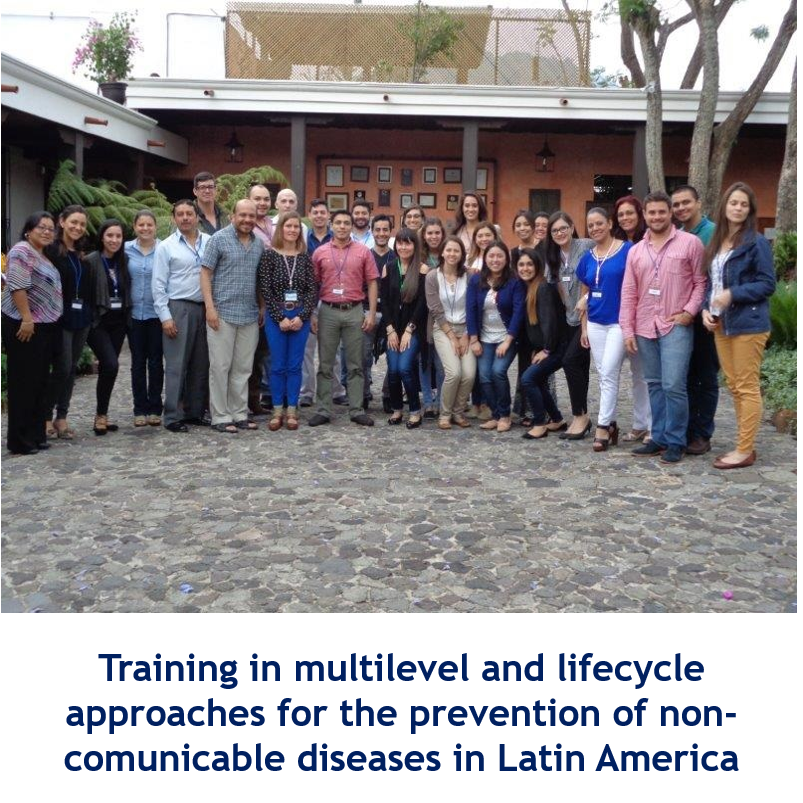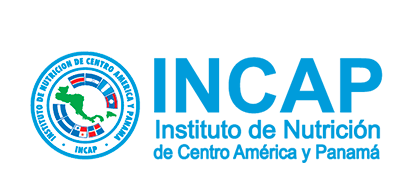
Training in Multilevel and Lifecycle Approaches for the Prevention of Non-communicable Diseases in Latin America
|
Participating institutions |
University of Michigan The University of Lanus Department and Institute for Collective
Health. Cardiovascular Surgery Unit of Guatemala (UNICAR for its
initials in Spanish) INCAP Comprehensive Center for the Prevention of Chronic Diseases
|
|
Principal Researchers |
University of Michigan The University of Lanus Department and Institute for Collective
Health. Cardiovascular Surgery Unit of Guatemala (UNICAR for its
initials in Spanish) INCAP Comprehensive Center for the Prevention of Chronic Diseases
|
|
Funding agency |
Fogarty Internacional Center de los National Institutes of
Health (NIH) |
|
General objective |
The overall
purpose of this project is to strengthen the capacity of Latin
American countries to address the NCD epidemic through a comprehensive
training program that integrates multilevel and lifecourse approaches
and emphasizes the importance of reducing social inequalities in NCD. Specifically this project will: ·
Strengthen capacity to conduct research on
multilevel and determinants on NCD with specific emphasis on identifying
factors that are modifiable through policy and intervention and relevant
to the specific country context ·
Enhance understanding of the modifiable and
causes of growing inequalities in NCD by socioeconomic position and ethnicity
with the ultimate goal of developing interventions to reduce these
inequalities; ·
Enhance research and training collaborations
between the local with the ultimate goal of developing a network of
synergistic NCD training and research centers in Latin America; and ·
Strengthen local institutional capacity to
conduct local training programs and lead research efforts in the
future.
|
|
Methodology |
Workshops: The academic program will include six
one-week workshops at the international sites, co-taught by UM and
local senior faculty. Each workshop will be an intensive 35-hour course,
corresponding to three academic credits. Workshops will be
structured to include lectures, case-studies, hands-on computer exercises,
and student presentations. Webinar: A permanent seminar on “Multidisciplinary
approaches to NCD prevention in developing countries” will be
established; which will consist of a formal presentation by hig-profile
investigators and policy makers in the field. The seminar will be
broadcast live to all sites and will allow real-time interaction with
the audience via teleconferencing. This webinar will occur four times
a year during the five years of funding and will be hosted at the
international sites on a rotating basis. Summer internship: Support will be offered for the short-term
summer internships at UM (two per year) on research methods relevant
to NCD through the lifespan to Latin American researchers identified
through the collaboration institutions. Doctoral training: Funding for Latin American students to
pursue a doctoral degree in NCD-related areas at UM will be provided.
Partners institutions overseas will contribute to identify potential
candidates, especially those among their junior faculty ranks and
investigators in their projects. Postdoctoral fellowship: Six medium-term postdoctoral
fellowship on NCD research at the UM will be offered. Each fellowship will
typically last for six months and will be targeted to
mid-career researchers and faculty who are already undertaking NCD
research in their countries. Post-training research: Research funds will be awarded to the
two graduates who began their doctoral training in year one and
should have completed it by year four. These funds will be used
towards developing pilot research projects on NCD that they will lead
as principal investigators.
Participating countries ·
USA,
Guatemala, El Salvador, Belize, Mexico, Honduras, Nicaragua, Costa Rica,
Panama, Dominican Republic, Argentina
|
















